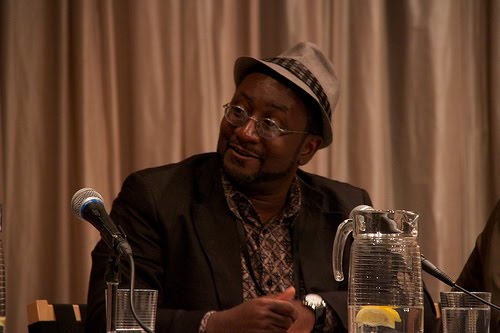In one of his books (LAKE WOBEGON DAYS, I think), Garrison Keillor writes about losing during a journey on a train the only existing manuscript of the greatest novel he ever wrote.
Stephen King, in the novel (and film version) of MISERY, has a protagonist whose peculiar idiosyncrasy is that he never makes a back up copy of a completed manuscript; and then, of course, he gets to watch, in misery, ahem, as the sadistic Annie Wilkes destroys that solitary copy of his greatest work before his very eyes.
Indeed, it was a common fear among writers of yore that one might lose the lone existing copy of one's magnum opus.
Ah, the tragedy.
Subsequently, one would sorely tax one's brain to produce a replacement version that would always feel inferior compared to the memory of the brilliantly penned and tragically lost epic. Even if the replacement work when published garnered bucket loads of acclaim and awards, one would always feel that it was not really nearly as good as the one that was lost.
But that was back in the day of pencil and pen and that marvel of technological antiquity, the typewriter. Writers today live in the modern age--the age of the computer with its revolutionary abilities to print flawless copy on a laser printer, send said copy to various remote regions for safekeeping via email, and create infinite back up duplicates of said copy on the computer's hard drive and whatever portable external devices one sees fit to fill with the precious and brilliant literary masterpiece.
That being said, this weekend past I nevertheless lost a precious bit of writing.
I had been laboring with this manuscript for nigh unto three years when finally last Sunday morning around 5:00 a.m. I awakened to find that I knew how to make the story work.
So I rose from my bed, opened the most recent draft of the story, and began to type. I typed until about five in the afternoon--12 solid hours of corrections, additions, cuts, and tweaks.
Just before I took a break, for about an hour I scrolled through the work, smiling as I appraised some of the changes I had made and the new passages I had written.
I saved the document. Then I took a ten minute break.
When I returned to the computer, I noticed immediately that there was no evidence of the manuscript on the desktop, where I had saved it. Not a problem.
I clicked on "recent documents" in the menu, and there was the file. Let's call it "Cop Novel" for sake of clarity.
When I clicked on "Cop Novel," a message came up that read "extension not found," or something like that.
I was confused. Where was this novel that I had worked on all morning? Where were all of the edits, corrections, cuts, and additions I had made?
The only thing that I could find was the old version of "Cop Novel" before my edits of the past half day.
I tried everything that I knew how to do to recover the document, but I produced no results save that annoying message. "Extension not found."
A week of futility followed.
I contacted a friend who always bails me out of computer trouble and he suggested I try the "System Restore" command.
That didn't work.
Another friend loaned me a copy of something called "Undelete-Plus."
That didn't work.
Everyone I contacted suggested something to try, but everything I tried failed.
Nothing worked.
Finally, I decided that my only way out of this is to open the old draft of the novel (before the edits), and wrack my brain to produce a replacement version that will no doubt feel inferior compared to that brilliantly penned and tragically unrecoverable epic I recall with such fondness and awe.
Thanks,
Preston
p.s.
In a way, this might be a good thing. I recall that when I was in college, one of my composition professors had us do an exercise that involved our writing a set of essays, reading them out loud, commenting on them, and then her collecting them and throwing them unceremoniously into the trash. "This weekend," she said, "I want you to write the essay again, but make it better than you did last time."
We groaned as we left the class, but the essays we turned in the next week were brilliant compared to the ones the professor had tossed in the trash. We know this because she hadn't actually discarded them, but had waited until we left the room before retrieving them.
Ultimately she gave back both papers so that we could see the difference between our weak (though beloved) discarded draft, and the much improved draft that we had crafted from memory.
I am heartened by the memory of this exercise.
